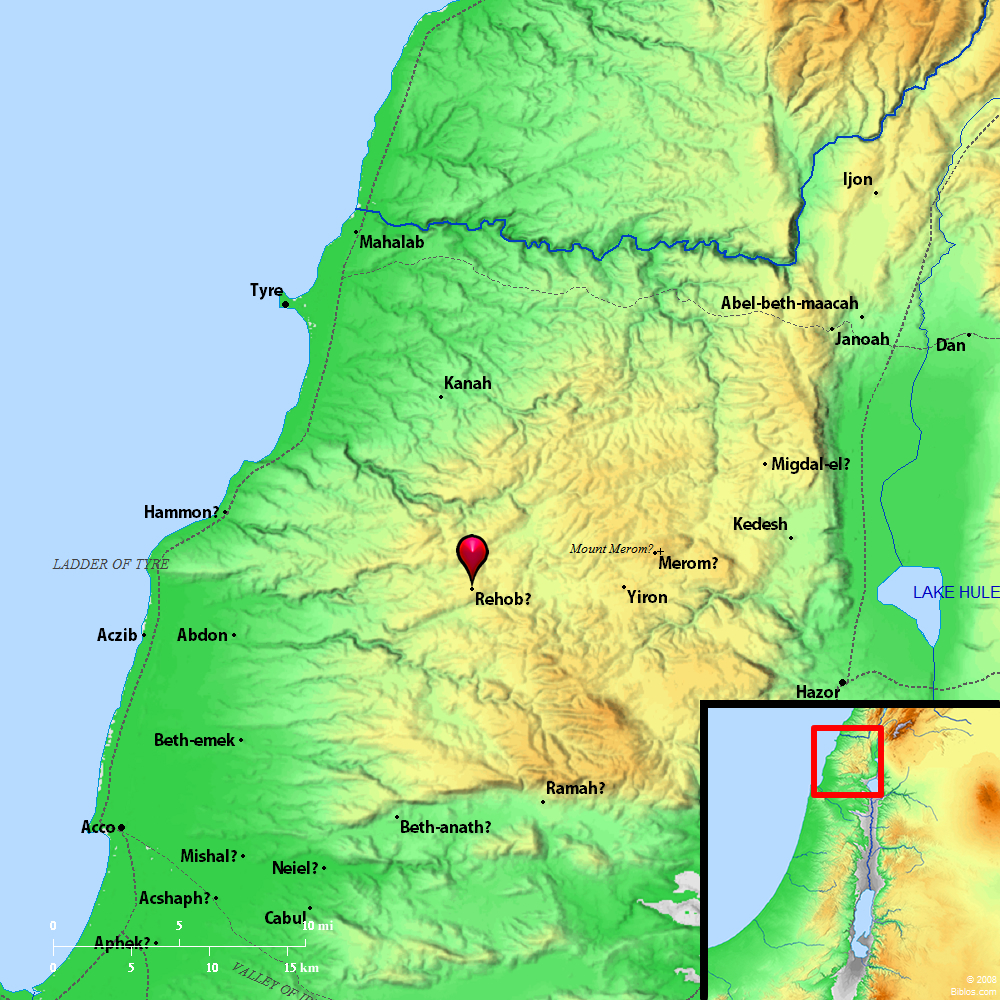Atlas

Rehob and surrounding region
Maps Created using Biblemapper 3.0Additional data from OpenBible.info
You are free to use up to 50 Biblos coprighted maps (small or large) for your website or presentation. Please credit Biblos.com.
Occurrences
Numbers 13:21 So they went up, and spied out the land from the wilderness of Zin to Rehob, to the entrance of Hamath.
2 Samuel 10:8 The children of Ammon came out, and put the battle in array at the entrance of the gate: and the Syrians of Zobah and of Rehob, and the men of Tob and Maacah, were by themselves in the field.
Encyclopedia
REHOBre'-hob (rechobh; Rhoob, Rhaab):
(1) Etymologically the word means "broad" and might be applied either to a road or a plain. Rehob is given (Numbers 13:21) as the northern limit of Israel as reached by the spies. This agrees with the position assigned to Beth-rehob in the narrative of the settlement of the Danites (Judges 18:28). It is mentioned again along with the kingdom of Zobah in connection with the wars of Saul (1 Samuel 14:47 Septuagint Lag.), and as having been associated with, Zobah and Maacah against David in the Ammonite war and as having been defeated by him (2 Samuel 10:6). Robinson sought to identify it with Hunin, but it hardly suits the references. Buhl (GAP, 240) following Thomson (LB, II, 547) seeks it at Paneas (modern Banias). This would suit all the requirements of the capital, Beth-rehob, which might then be the second Rehob, assigned as part of the territory of Sidon to the tribe Asher (Joshua 19:28, 30 Judges 18:28). We must, however, assign to the kingdom of Rehob a territory extending from the settlements of the Danites to the "entering in of Hamath" or to Libo (modern Leboue), i.e. the Great Plain of Coele-Syria bounded by Lebanon and Anti-Lebanon and within the limits indicated.
(2) Two separate towns belonging to Asher (Joshua 19:28; Joshua 19:30). One of them was given to the Gershonite Levites (Joshua 21:31), and one is mentioned as remaining in the hands of the Canaanites (Judges 1:31).
(3) Father of Hadadezer, king of Aram Zobah, who was overwhelmed by David at the Euphrates (2 Samuel 8:3, 12).
(4) One of the Levites who sealed Nehemiah's covenant on the 24th Tishri, 444 B.C. (Nehemiah 10:11).
W. M. Christie




